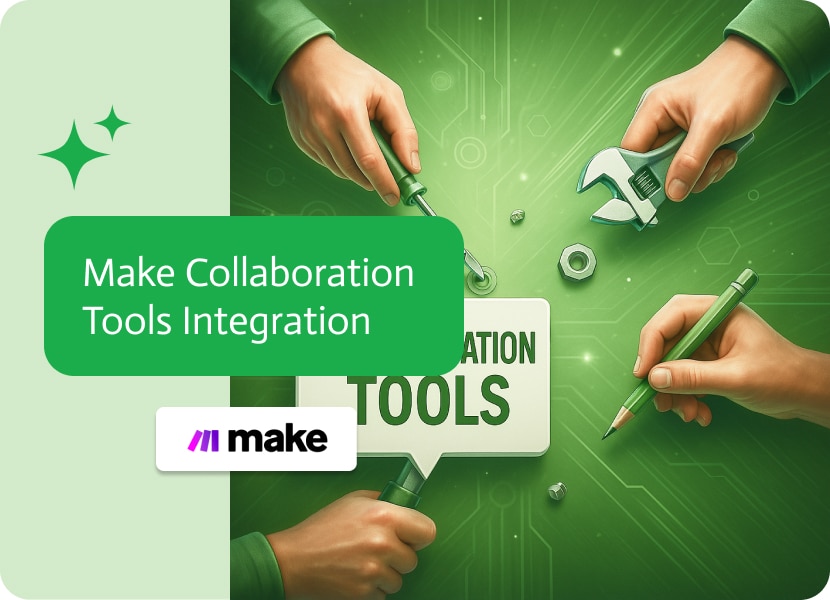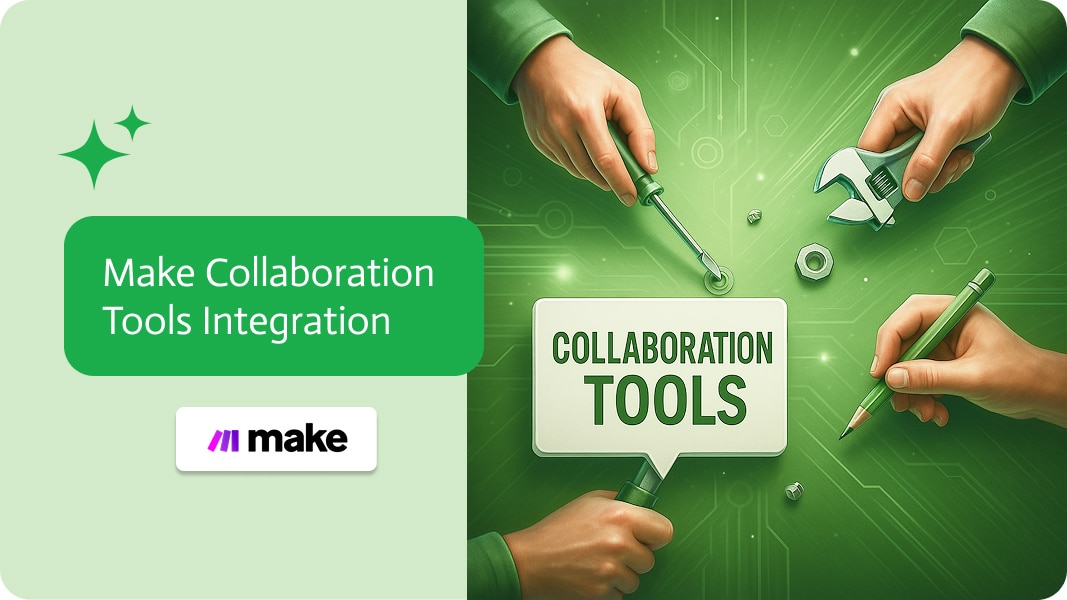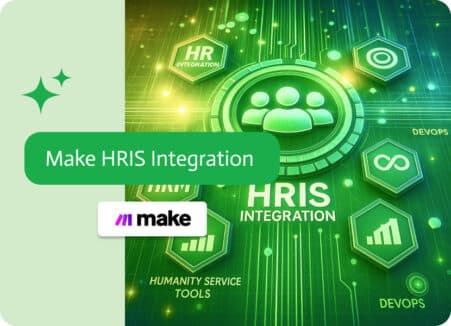

Make Collaboration Tools Integration
Introducing Make
Make (formerly Integromat) is an integration and automation platform built to simplify workflows for businesses of all sizes. It helps users connect various applications, automate repetitive tasks, sync data, and boost overall productivity. For small businesses and non-profits, Make Collaboration Tools Integration offers an easy-to-use solution to integrate their collaboration tools with other essential systems, ensuring smooth operations.
Top Use Cases for Collaboration Tools Integration
1. Unified Messaging
Integrate different communication platforms to ensure messages from multiple tools are unified in one place.
Example: A small business integrates Slack with Microsoft Teams. This integration ensures that messages sent in Slack channels are also visible in Teams, maintaining consistent communication across the organization. Employees can choose their preferred platform without worrying about missing important updates, thus enhancing overall team collaboration.
2. Cross-Platform Calendar Sync
Sync calendars between different scheduling tools to prevent scheduling conflicts and missed appointments.
Example: A non-profit organization integrates its Google Calendar with Outlook Calendar. Volunteers and staff members often use different email and calendar platforms. By syncing these calendars, events and meetings scheduled in one system automatically reflect in the other. This integration helps prevent double bookings, ensures everyone is on the same page, and significantly improves time management across the organization.
3. Centralized Task Tracking
Consolidate tasks from various task management tools to view all tasks, deadlines, and progress in one place.
Example: A small marketing agency uses Trello for some projects and Asana for others. By integrating both tools, project managers can view all tasks in one place, ensuring nothing falls through the cracks. This centralized task tracking allows for better resource allocation, timely updates, and a more streamlined project management process, which leads to higher efficiency and client satisfaction.
4. Integrated Video Conferencing
Link video conferencing tools with collaboration platforms to seamlessly set up and manage video meetings.
Example: A tech startup integrates Zoom with Google Meet. This integration allows team members to schedule and join video calls from either platform directly within their Slack workspace. It simplifies the process of setting up meetings, as employees can create a meeting in their preferred video conferencing tool without switching apps, ensuring higher participation and better communication.
5. Automated Status Reports
Generate and share status reports across platforms to keep everyone informed with automatic status updates.
Example: A project management team integrates Monday.com with Jira. Every week, the system automatically generates status reports in Monday.com and shares them with the team in Jira. This automation ensures that all stakeholders have up-to-date information on project progress, helping to maintain transparency and accountability. It also saves time by eliminating the need for manual report creation.
6. Employee Onboarding
Streamline the onboarding process across HR and collaboration tools to automate task assignments and document sharing for new hires.
Example: A growing company integrates its HR software with its collaboration tools like Asana and Google Drive. When a new employee is hired, the system automatically sets up their accounts, assigns onboarding tasks in Asana, and shares necessary documents via Google Drive. This seamless process ensures that new hires have everything they need from day one, making the onboarding experience smooth and efficient.
Make Alternatives for Larger Organizations
While Make (formerly Integromat) is a good solution for small businesses and non-profits, larger organizations might require more robust and scalable integration platforms. Here are a few Make alternatives better suited for bigger enterprises:
- Noca AI: Utilizes AI and NLP to provide a user-friendly, no-code integration platform suitable for all users, offering enterprise-ready solutions.
- MuleSoft: Known for its strong API management and data integration capabilities, suitable for enterprises with complex integration needs.
- Integrately: A user-friendly platform with a wide range of pre-built integrations designed for quick setup.
- Workato: Combines integration and automation capabilities.
- Zapier: A leader in the integration ecosystem for many years mainly used by small businesses and non-profits.
- Automation Anywhere: A leader in robotic process automation (RPA) offering extensive integration capabilities.
Conclusion
For small businesses and non-profits, collaboration tools integration through Make provides a powerful way to boost efficiency, improve resource management, and make data-driven decisions. By automating tasks, synchronizing data, and ensuring seamless communication across platforms, organizations can focus more on their core mission and less on administrative tasks. Embracing collaboration tools integration can transform how small businesses and non-profits operate, driving growth and success. However, larger organizations should consider more advanced alternatives like Noca AI, MuleSoft, Integrately, Workato, Zapier, or Automation Anywhere to meet their extensive needs.


